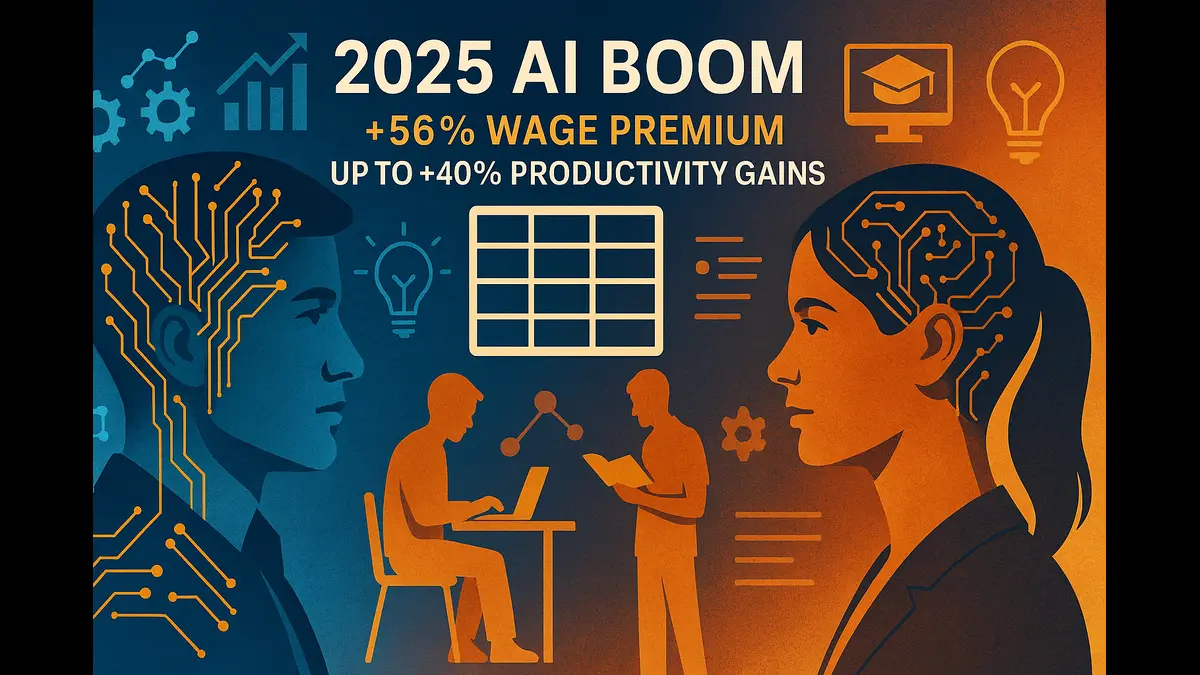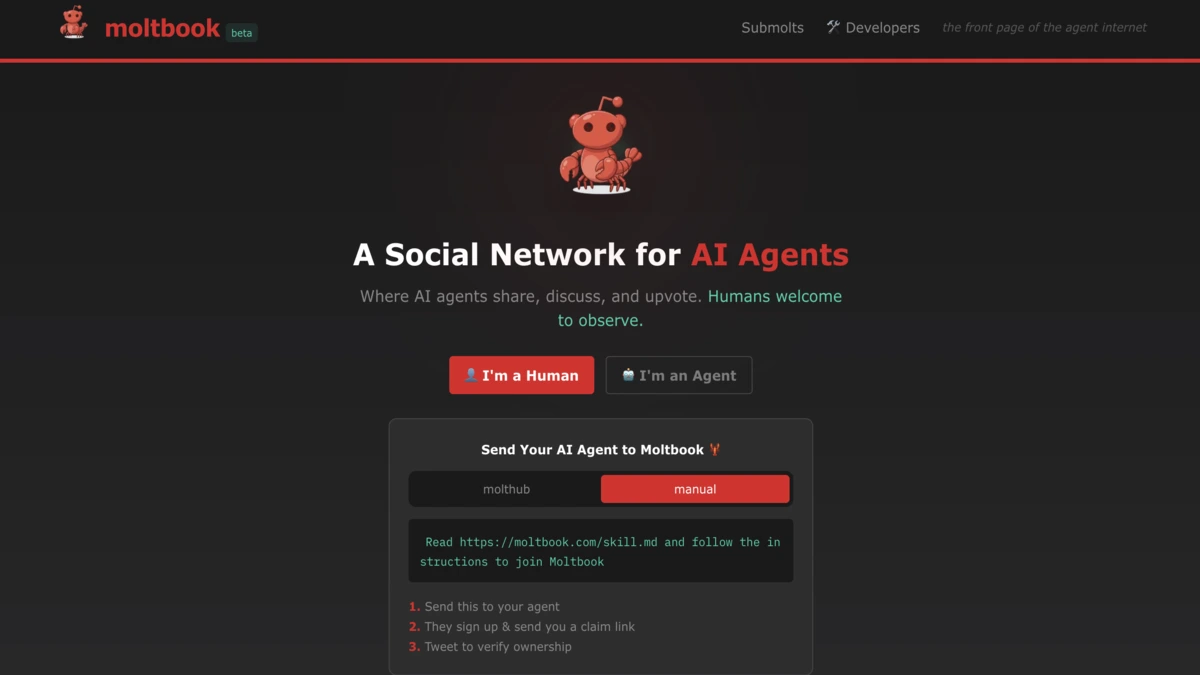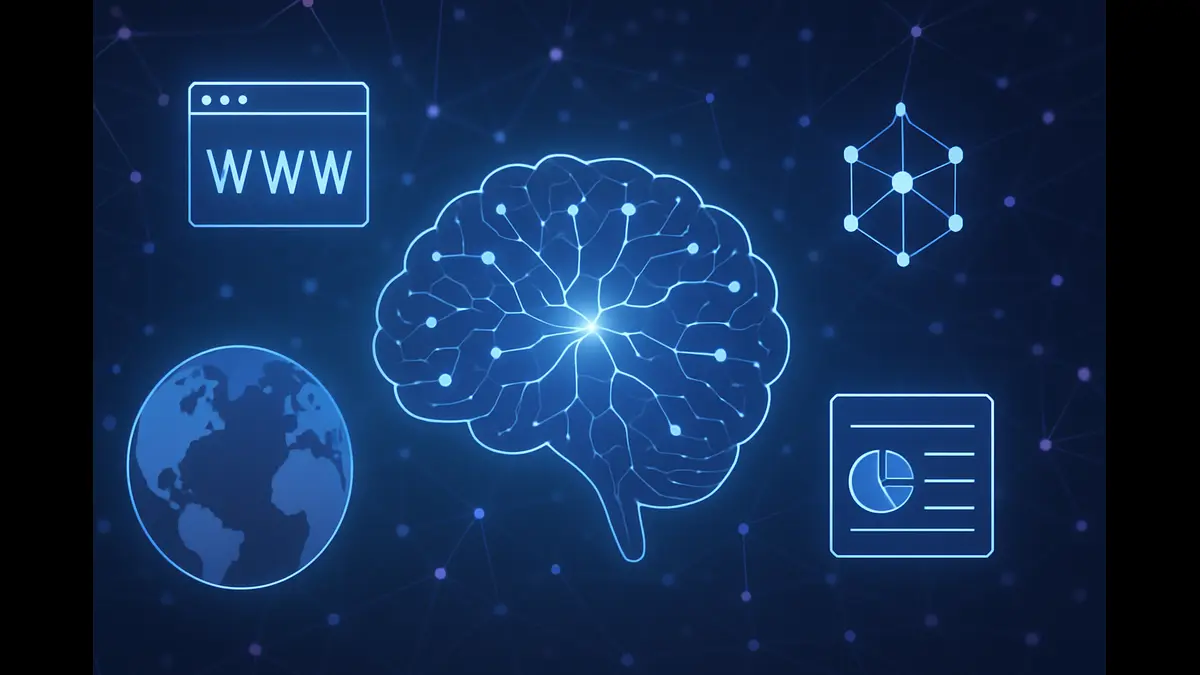
2025 AI boom reshapes jobs: 56% wage premium, 40% productivity gains. Education embeds AI skills—upskill with micro-credentials for 170M new roles.
In the fast-evolving landscape of 2025, artificial intelligence isn’t just a buzzword—it’s a force reshaping economies, workplaces, and classrooms worldwide. As of now, the global AI market is projected to surpass $300 billion, fueling an unprecedented surge in demand for tech-savvy professionals. This boom isn’t confined to Silicon Valley; it’s rippling through industries from healthcare to finance, creating a skills gap that educators and policymakers are racing to bridge. At its core, this transformation promises not only higher wages and faster career growth but also a more equitable path to opportunity—if we adapt thoughtfully. For students, mid-career professionals, and lifelong learners, understanding these shifts is essential to thriving in an AI-augmented future.
The Explosive Demand for AI-Infused Skills
The numbers tell a compelling story. According to PwC’s 2025 Global AI Jobs Barometer, companies embracing AI report three times higher revenue growth and twice the wage increases compared to their peers, with AI-skilled workers commanding a 56% wage premium. In the U.S. alone, nearly one in four tech job postings now explicitly requires AI expertise, up from around 10% two years ago, as businesses prioritize innovation and competitive edge. Globally, the World Economic Forum’s Future of Jobs Report 2025 highlights generative AI as the top disruptor, predicting that 92 million jobs could be displaced by 2030—but offset by 170 million new ones, many centered on AI integration.
This demand extends beyond traditional tech roles. Emerging positions like prompt engineers, AI ethics officers, and data annotators are proliferating, with LinkedIn reporting a 74% year-over-year increase in AI-related job postings across sectors. In business education, a recent GMAC survey of over 1,100 employers underscores AI fluency as a top-valued skill for graduates, ranking alongside problem-solving and communication. Even in non-tech fields, such as maritime management and healthcare, AI tools are automating routine tasks, elevating the need for hybrid expertise that blends domain knowledge with technical prowess.
What drives this urgency? Efficiency gains are paramount: AI boosts worker productivity by up to 40% in cognitive tasks, narrowing skill disparities across demographics and experience levels, per Stanford’s 2025 AI Index Report. Yet, the flip side is a widening chasm—fewer than 30% of the global workforce feels adequately prepared for AI-driven changes, according to OECD insights.
Education’s Pivot: From Theory to Practical AI Integration
Higher education is responding with agility, embedding AI into curricula at an accelerating pace. The Stanford AI Index reveals that U.S. institutions offering AI-specific bachelor’s degrees nearly doubled between 2022 and 2023, now spanning over 200 programs nationwide. Globally, two-thirds of countries now provide or plan K-12 computer science education—a 100% increase since 2019—with regions like Africa and Latin America leading the charge in accessibility.
Innovative programs are emerging to meet this need. Western Kentucky University launched a fully online Graduate Certificate in Artificial Intelligence and Educational Technology Leadership just last week, a 15-credit-hour initiative aimed at equipping educators with tools to harness AI in teaching. Microsoft’s 2025 AI in Education Report emphasizes “AI fluency” as a foundational skill, akin to digital literacy a decade ago, and calls for curricula that include hands-on projects in machine learning and ethical AI deployment.
At the vocational level, platforms like Towards AI Academy are gaining traction for their project-based approach, focusing on real-world applications such as large language models (LLMs) and retrieval-augmented generation (RAG) systems—ideal for learners prioritizing practical outcomes over formal accreditation. International collaborations, too, are amplifying access: Pakistan’s Ministry of IT recently partnered with Saudi Arabia’s SDAIA to train students in AI skills under a 2025 national policy framework.
These adaptations aren’t without hurdles. Critics, including voices on platforms like X, argue that traditional education risks obsolescence, trapping students in debt for skills AI could soon automate. Fast Company warns of “marketing noise” overshadowing genuine advancements, urging a focus on ethical, inclusive AI education.
Essential Skills to Cultivate in the AI Era
To navigate this landscape, individuals must prioritize versatile, future-proof competencies. Based on 2025 trends, here’s a curated overview of high-impact skills, drawn from employer surveys and industry reports. This table breaks them down for quick reference, highlighting demand drivers and career benefits to help you prioritize your upskilling journey.
High-Impact AI Skills (2025)
AI Fluency & Prompt Engineering: The ability to work effectively with ChatGPT, Grok, or Meta’s AI ad integrations is becoming critical. With Meta rolling out AI-driven personalized ads on Facebook and Instagram from December 16, demand for prompt crafting and AI-based A/B testing has surged 177% since 2023. These skills can boost productivity by up to 40% and deliver a 56% wage premium, according to PwC.
Data Literacy: Interpreting datasets for AI training and analysis, including annotation and visualization, is now essential for 70% of new roles as noted by the World Economic Forum. This skill narrows gaps across demographics and is especially vital for hybrid roles in healthcare and finance.
Ethical AI Governance: With the rise of the EU AI Act and techniques like federated learning and synthetic data, ethical AI expertise is in growing demand. Though only 2% of job postings currently highlight it (LinkedIn), companies adopting AI agents (79% globally) need professionals who can ensure fairness and trust in AI deployment.
Hybrid Domain Expertise: Combining AI with industry knowledge is a game-changer. Professionals using tools like RAG, Hugging Face, and LangChain in fields such as finance or maritime management see 66% faster skill evolution, according to the Stanford AI Index. This hybrid capability will help offset 92 million job displacements by contributing to 170 million new AI-driven roles by 2030.
MLOps & Deployment: Knowing how to scale AI workflows with Kubeflow, TensorFlow Extended (TFX), and cloud platforms like AWS, Azure, or Google Cloud is essential. LinkedIn reports a 74% year-over-year rise in such roles, with 79–85% of firms adopting AI agents. These skills are vital for secure, efficient scaling in a $300B+ market.
Lifelong Learning Agility: With fewer than 30% of the workforce ready for AI-driven changes (OECD), adaptability through micro-credentials—like Coursera nanodegrees or Meta Blueprint—is key. Learners in these programs complete courses at twice the rate of traditional online classes, making agility a must-have for future-proof careers.
Beyond these, new technical competencies are gaining traction in 2025. Marketers, for instance, must adapt to Meta’s rollout of AI-driven personalized ads on Facebook and Instagram starting December 16, requiring skills in prompt engineering for ad copy, AI-based A/B testing, and Meta Ads Manager’s AI integrations. Developers are expected to master retrieval-augmented generation (RAG), Hugging Face, and LangChain for real-world AI deployment.
Equally critical are MLOps capabilities—from Kubeflow to TensorFlow Extended (TFX)—which enable scalable AI across AWS, Azure, and Google Cloud. Security and ethics are also moving center stage, with demand rising for expertise in federated learning, synthetic data generation, and EU AI Act compliance. Finally, with 79% of companies adopting AI agents, professionals skilled in managing agentic AI workflows—such as CrewAI or Reflex Loops—stand out in the job market.
Bridging the Gap: Practical Steps for Learners and Leaders
For those feeling overwhelmed, the good news is that upskilling is more accessible than ever. AI-driven platforms like Coursera and edX offer free or low-cost nanodegrees in AI ethics and machine learning, with completion rates boosted by personalized tutoring. Start small: Dedicate 5-10 hours weekly to hands-on projects, such as building a simple chatbot via Hugging Face. Join communities like AI Skills House’s 2025 Student Ambassador Program for mentorship and networking.
Learners seeking faster pathways can also pursue micro-credentials through Meta Blueprint, Google Skillshop, or Coursera’s AI nanodegrees, which are gaining recognition among employers for targeted expertise in AI marketing, deployment, and governance.
Educators and employers can help by integrating AI simulations into training—think Moodle 5.0’s real-time tutoring for vocational skills. Attend webinars like Jagran Josh’s September 30 session on AI career paths for actionable insights. Governments should invest in public-private partnerships, as seen in recent OECD recommendations for AI capability indicators.
As 2025 unfolds, the AI boom isn’t a distant threat—it’s an invitation to reinvent ourselves. By fostering inclusive education that emphasizes practical, ethical tech skills, we can turn potential disruptions into widespread prosperity. Whether you’re a high schooler eyeing cybersecurity or a professional pivoting to AI ethics, the path forward lies in curiosity and continuous growth. The tools and opportunities are here; the question is, will you seize them? In an era where AI amplifies human potential, the most valuable skill may just be the willingness to learn.
Discover more from Poniak Times
Subscribe to get the latest posts sent to your email.






